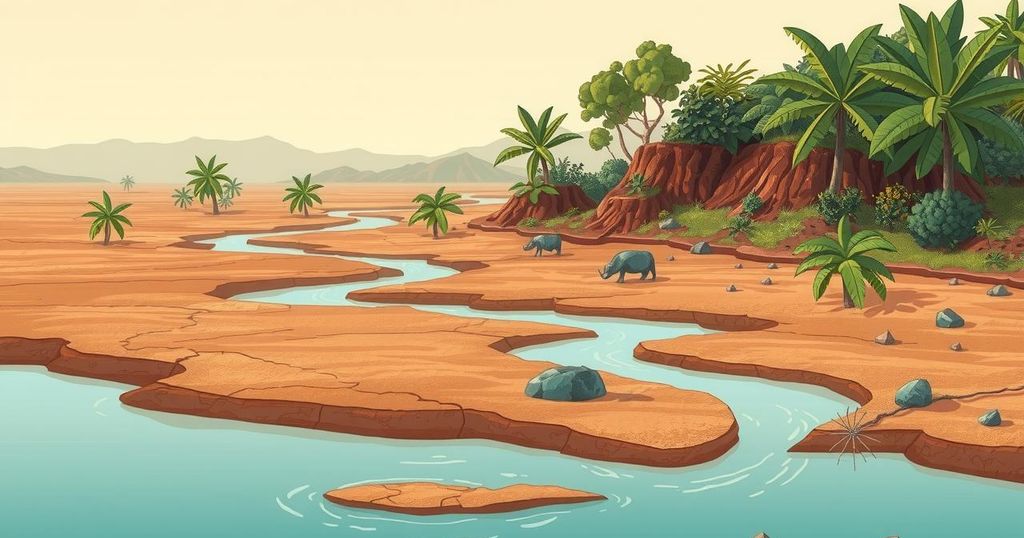World news
AMAZON, ASIA, BELEM, BRAZIL, CLIMATE CHANGE, COM, DEFORESTATION, DENMARK, DISASTER MANAGEMENT, DOMINICAN REPUBLIC, EUROPE, INDIA, JULIAN, JULIANO SCHIRMBECK, NATURAL DISASTERS, NDTV, NDTV. COM, NORTH AMERICA, PANTANAL, PARA, RHODE ISLAND, RIO DE JANEIRO, SOUTH AMERICA, US, WATER MANAGEMENT
Marisol Gonzalez
0 Comments
Brazil’s Natural Surface Water Losses Due to Climate Change and Land Conversion
Brazil is losing natural surface water, primarily due to climate change and land conversion, according to a MapBiomas report. The nation lost 400,000 hectares of aquatic surface from 2023 to 2022. Since 1985, approximately 2.4 million hectares have been lost, signaling the need for improved water management policies. Brazil’s Amazon, key for climate regulation, continues to see dramatic decreases in water surface area, with the Pantanal wetland being significantly affected.
Brazil, which possesses 12 percent of the world’s freshwater resources, is experiencing a significant loss of natural surface water due to climate change and the transformation of forests into agricultural lands. According to the MapBiomas monitoring platform, the nation lost approximately 400,000 hectares of aquatic surface from last year to 2023, which is comparable to the size of Rhode Island.
In the past 16 years, only 2022 indicated an increase in water surface area, while from 1985 to the present, Brazil has lost around 2.4 million hectares of river and lake surface. This depletion is attributed to factors such as drought, urban development, and excessive aquifer pumping.
Juliano Schirmbeck, coordinator of the MapBiomas Agua report, emphasized, “The dynamics of land occupation and use, along with extreme climate events caused by global warming, are making Brazil drier.” He further noted that these findings highlight the urgency for adaptive water management strategies and public policies aimed at reversing this alarming trend.
Brazil will be the host for the COP30 UN climate conference, scheduled for November in Belem, Para, the capital of the Amazonian state. The Amazon region, which accounts for nearly two-thirds of Brazil’s surface water, is vital for absorbing carbon dioxide and regulating the climate.
Last year, the extent of surface water in the Amazon decreased by 4.5 million hectares compared to the previous year, translating to an area the size of Denmark. The Pantanal wetlands, which suffered from drought and wildfires last year, experienced the most dramatic impact, with current water surface measurements being 61 percent below the average since 1985.
Brazil is facing a critical challenge as it loses substantial natural surface water due to climate change and extensive land conversion. With ongoing monitoring illustrating the severity of these changes, immediate action is essential. The insights from the MapBiomas report highlight the necessity of implementing effective water management strategies as Brazil prepares to host the COP30 UN climate conference to address these pressing environmental issues.
Original Source: www.ndtv.com




Post Comment